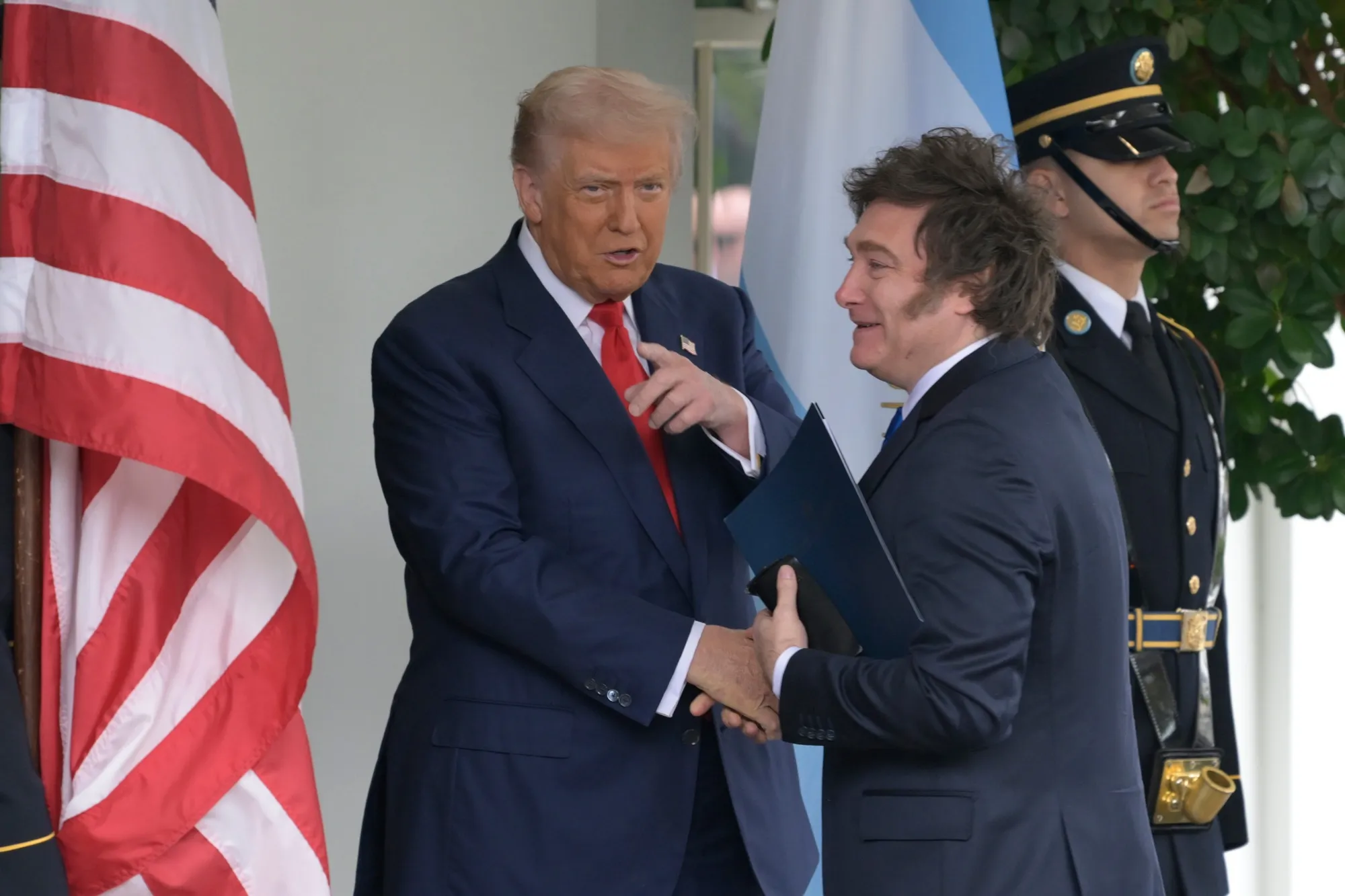As his coziness with dictators around the globe suggests, Trump likes and admires fellow autocrats, from Orbán to Netanyahu to Putin. But not just any autocrats. In Argentina, Javier Milei, with his pro-Trump sycophancy, his MAGA imitation, and his war on the poor, is Trump’s kind of despot. Not so Venezuela’s Nicolás Maduro.
Trump, with the help of Treasury Secretary Scott Bessent, just pulled off a rescue that few thought possible. Bessent promised $40 billion to shore up the faltering peso, $20 billion in U.S. Treasury swap lines and another $20 billion to be assembled from U.S. banks. Trump declared explicitly that continuing U.S. support for the peso was dependent on Argentine voters supporting Milei. One thing you can say for Trump—there is nothing covert about his meddling in other countries’ internal affairs.
For now, the bribe worked. In yesterday’s national elections, with one-third of House and half of Senate seats at stake, Milei’s party made big gains. He won about 41 percent of the national vote, nearly doubling his party’s seats, weakening the Peronist opposition, and giving him the crucial one-third threshold in Congress needed to uphold his vetoes. The win also reassures money markets that U.S. support will continue, shoring up the peso and thus reducing the need for direct U.S. aid. So austerity will continue.
Meanwhile, at the other end of the continent, it’s increasingly clear that Trump’s tactic of murdering people on small fishing boats in the Caribbean is less about interdicting alleged drug smugglers and more about provoking open warfare with Venezuela’s Maduro. Just before Trump left for Asia, the U.S. dispatched the Gerald R. Ford, the world’s largest aircraft carrier, to the Venezuelan coast. The U.S. already has other warships, drones, fighter planes, and surveillance aircraft in the nearby Caribbean.
While many of Trump’s impulsive foreign-policy moves are unprecedented, the attempt to destabilize the Maduro regime is all too precedented. Over the years, the CIA has toppled leftist/nationalist regimes in nations as diverse as Chile, Nicaragua, and Iran.
But compared to the covert tradecraft of those U.S.-sponsored coups, Trump’s harassment of Maduro is overt, scattershot, and incoherent. Flagrant murders of fishermen on the high seas? Open threats with aircraft carriers? In August, the U.S. announced a $50 million reward for Maduro’s capture—twice the bounty once offered for Osama bin Laden. But while supposedly working for Maduro’s ouster, the administration has revoked Temporary Protected Status for an estimated 600,000 Venezuelan refugees in the U.S., and has been coordinating with the Maduro regime on deportation flights back to Caracas.
Meanwhile, Trump has added Colombia’s president, Gustavo Petro, to his personal enemies list, accusing him of drug trafficking. In fact, Petro is a competent and honest moderate leftist, democratically leading a nation long beset with civil strife and drug cartels. Petro is no friend of Maduro, and even less of a friend of drug traffickers. His only sin is to have criticized Trump.
If anyone deserves to be toppled, it is Maduro. He is both monumentally unpopular and personally corrupt. In that respect, as a dictator he is reminiscent of nobody so much as Donald Trump.
Maduro wrecked the Venezuelan economy, once among Latin America’s richest, causing some seven million Venezuelans to leave their homeland. Even so, the U.S. has no business sponsoring crude regime change.
I wish I could report that Trump’s policies are a disgraceful break with past U.S. policies. But they are all too in keeping with a long history of hemispheric meddling and worse. What’s different are Trump’s crude tactics.
In Argentina, the U.S. has a long history of using dollar debt, the International Monetary Fund, and support for hedge funds to push that nation’s economy into austerity. This time, the U.S. has found a local leader to do the job. In Venezuela and elsewhere, the U.S. was fine with dictators as long as they were pro-U.S. dictators.
Trump’s opposition would have more credibility if Washington had cleaner hands.


